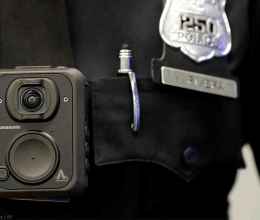LOS ANGELES – The nation’s first class action lawsuit on behalf of immigrant detainees with severe mental disabilities – detainees who are left defenseless in a system they cannot comprehend – was filed late Monday by a coalition of legal organizations led by the American Civil Liberties Union of Southern California, Public Counsel, and Sullivan & Cromwell LLP.
The suit asks a federal district court here to order the U.S. government to create a system for determining which non-citizens lack the mental competence to represent themselves and to appoint legal representation for those who are unable to defend themselves. Unlike the criminal court system – where appointed counsel is part of due process – immigration courts and detention facilities have no safeguards for ensuring that the rights of people with serious mental disabilities are protected. Two plaintiffs in the suit were the subject of habeas petitions before federal courts in California last March.
“Our Constitution and our laws demand fair treatment for people with severe mental disabilities,” said Ahilan Arulanantham, director of immigrants’ rights and national security for the ACLU/SC. “If someone cannot undertstand the proceedings against them, due process requires that they be given a lawyer to help them.”
Others participating in the suit include the American Civil Liberties Union’s Immigrants’ Rights Project, the ACLU of San Diego & Imperial County, Northwest Immigrant Rights Project, and Mental Health Advocacy Services.
The six immigrants represented are from California and Washington, and all have been diagnosed with severe mental disabilities, such as schizophrenia and developmental disability. Several have been found incompetent to stand trial in other court proceedings.
 One of them, Jose Antonio Franco-Gonzalez, was lost in detention facilities in California for nearly five years because of the government’s failure to account for his cognitive disability. Another detainee named in the lawsuit, Ever Francisco Martinez-Rivas, is a 31-year-old lawful permanent resident who came to the U.S. at the age of nine. He has been diagnosed with schizophrenia so severe that he gets confused when given simple directions, and has been deemed “a gravely disabled person.” Despite this, the government intends to deport Mr. Martinez without giving him a lawyer and without having his mental state evaluated.
One of them, Jose Antonio Franco-Gonzalez, was lost in detention facilities in California for nearly five years because of the government’s failure to account for his cognitive disability. Another detainee named in the lawsuit, Ever Francisco Martinez-Rivas, is a 31-year-old lawful permanent resident who came to the U.S. at the age of nine. He has been diagnosed with schizophrenia so severe that he gets confused when given simple directions, and has been deemed “a gravely disabled person.” Despite this, the government intends to deport Mr. Martinez without giving him a lawyer and without having his mental state evaluated.
“This broken system unjustly ruins the lives of detainees and their families. Our country’s values demand that we provide fair treatment for detained immigrants with serious mental disabilities,” said Talia Inlender, staff attorney with Los Angeles-based Public Counsel.
The exact number of detainees with severe mental disabilities is unclear, but some reports estimate that at least two to five percent of the immigrants detained by immigration authorities nationwide – or 7,000 to 19,000 individuals – might have a serious mental disability.
“The problem worsens day by day as the detention centers swell with more detainees,” said Michael Steinberg, a partner of Sullivan & Cromwell. “Ignoring the needs of those suffering from mental illnesses only debases our system of justice.”
The widespread failure of the Department of Homeland Security and the Department of Justice to implement such a system and provide court-appointed attorneys to those with serious disabilities was recently documented in a report jointly published by the ACLU and Human Rights Watch.
Image: Maria Franco with a photo of her son.





